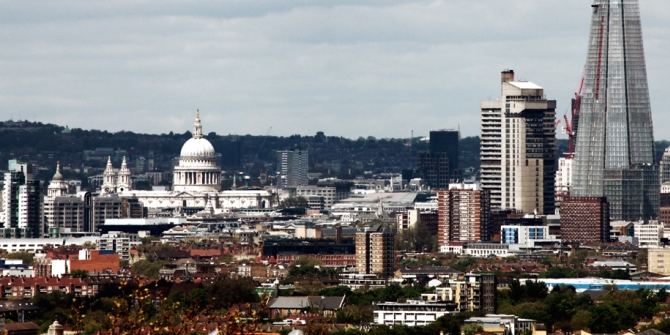By Ronda Daniel, LSE undergraduate and Researching Sociology @ LSE blog editor (@rondaemily_)
This week, the Researching Sociology @ LSE blog will feature a series of posts about a panel discussion held at the LSE on Thursday 17th November, entitled ‘Is there a class issue at LSE?’. The event was hosted by LSE’s Social Mobility Society, a new student society founded and chaired by Mateusz Macjejewski.
This first piece will outline who the panellists were, a combination of staff and students at the LSE. The following posts will discuss the panellists’ views on this subject; the final blog piece this week will discuss the implications this discussion has for the LSE, and other universities where there are social class issues.
Panellists were as follows:
Professor Mike Savage, previous head of LSE’s Sociology department, and current co-Director of LSE’s International Inequalities Institute. Mike has been at the LSE for 4 years, where he spearheaded the pioneering ‘Social Class in the 21st Century’ project, aiming to renew discussion and interests in class analysis. Find out more about Mike’s interests and work here.
Sol Gamsu, Assistant Sociology Professor and PhD student, studies and writes about education, class and the city. His recent work ‘Moving up and moving out: The re-location of elite and middle-class schools from central London to the suburbs’ applies a Bourdieusian lens to ‘understand the institutional trajectories of 51 schools which moved from central London out to the suburbs and beyond between the 1860s and 1970s’. Read more about Sol’s work here.
Temi Mwale, final year law undergraduate at LSE and award winning social entrepreneur. Temi is founder of the 4Front Project, a youth-led organisation that tackles youth violence, which she began after her next door neighbour was shot and killed. She argues that the term “gang” is charged and dangerous, particularly associated with age and race. She grew up on Grahame Park estate in North London, and attended the London Academy. She has won multiple awards, including the Peacemaker of the Year Award, Points of Light Award, and Cosmopolitan’s Ultimate Campaigner Award. Find out more about Temi’s work and the 4Front Project here.
Tallulah Eyres, second year sociology undergraduate at the LSE. She has been involved in the Dick Camplin Education Trust, as well as the Sutton Trust, Pathways to Law and LSE’s Widening Participation programme. She comes from a working-class background and grew up on a council estate in Salford, attending a converted academy. She is currently working for Rebecca Long-Bailey, Shadow Chief Secretary to the State at the Houses of Parliament. She is interested in educational inequality and class.
I was also on this panel; I am a final year sociology undergraduate at the LSE. I grew up on a council estate in Dagenham, East London, and come from a working-class background. I attended my local community school and due to my family’s poverty, we relied heavily on benefits. I am now currently working part-time with young carers in Dagenham, having grown up as a young carer myself. My dissertation research focuses on how media images of benefit recipients affect their identities and treatment.



